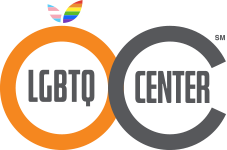Why is Tobacco an Issue for the LGBTQ+ Community?
LGBTQ+ public health matters. That’s why the LGBTQ Center OC is supporting our community in making moves that help them live longer and happier lives. Smoking and vaping are some of the most common ways our community copes with stress. It’s in the data. Smoking and vaping might be immediately gratifying to some, but has long-term consequences for all.
Are you or your loved one ready to accept this support? We’ll be here whenever you are ready.
It’s in the data
Tobacco is one of the leading causes of preventable death and disease, and this disproportionately impacts the LGBTQ+ Community.
Our program aims to help LGBTQ+ individuals who are ready to quit smoking tobacco products by linking them to safe and affirming tobacco cessation services. We are committed to working with our community in addressing the social determinants that lead to smoking and provide services to LGBTQ+ people that will ensure their well being.
Big Tobacco companies prey and target The LGBTQ+ Community with their marketing, creating a vicious cycle of addiction that starts when young.
The tobacco industry has been disproportionately targeting marginalized and disenfranchised communities for many years; drawing people into a dangerous addiction with severe lifelong health repercussions. In 1995, Big Tobacco employed a heinous and hateful marketing tactic called Project SCUM (Sub Culture Urban Marketing); LGBTQ+ people became the concentration of targeted marketing techniques focused on engaging minority communities into a tobacco addiction (Truth Initiative, 2019).
Research shows The LGBTQ+ Community is more likley to be addicted to tobacco and smoking compared to their cisgender and heterosexual counterparts.
The LGBTQ+ community is disproportionately impacted by tobacco and LGBTQ+ adults are twice as likely to smoke than their cisgender heterosexual counterparts (Truth Initiative 2018). People with an LGBTQ+ identity experience more discrimination because of their sexual orientation or gender identity, LGBTQ+ people expereince higher rates of negative self-image, internalized homophobia and struggle with coming out and some turn to smoking to help them cope with the realities they are living (Harlow et al, 2021). For people who identify as bisexual, the likelihood of starting smoking after coming out is twice as likely than other LGT individuals due to experiencing greater levels of stigma because of their bisexuality (Boston University, 2021). The smoking prevalence among transgender people is 26.7% among trans FTM people, and 13.9% among trans MTF people (Tami-Maury, 2020).
Contact us at 714-953-LGBT (5428) or
Email Tony Viramontes at antonio.viramontes@lgbtqcenteroc.org, and Tobias Vasquez at tobias.vasquez@lgbtqcenteroc.org.


